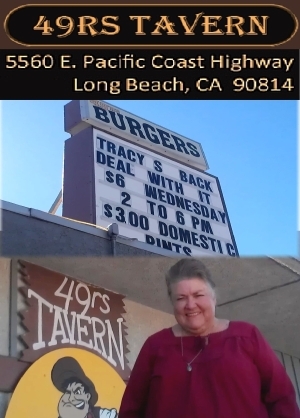 |  |
 |  |
| The following views are excerpted from a mass emailing sent on the eve of the U.S. Supreme Court's rulings CA's Proposition 8 and the federal Defense of Marriage Act by Dr. John C. Eastman, who is Henry Salvatori Professor of Law & Community Service at Chapman University School of Law and Founding Director of the Center for Constitutional Jurisprudence (CCJ). The CCJ filed "Friend of the Court" briefs urging the Court to take the Proposition 8 case and asserted in materials filed in both the Proposition 8 and Defense of Marriage Act cases the right of Prop 8's proponents and the House of Representatives to defend the laws when the CA and U.S. Attorneys General refused to do so.
(June 25, 2013) -- ...[A]s a strong supporter of traditional marriage, I remain very optimistic that Proposition 8 will be upheld. The arguments against it, which run the gamut from "no jurisdiction to even hear the case" to "the Constitution mandates same-sex 'marriage' in all 50 states," simply fell flat during oral argument back in March. Let me explain the issues a bit. First, the jurisdictional challenge. The argument is that the proponents of Proposition 8 had no legal standing to bring the appeal when the Attorney General of the State refused to do so. But I think that arguments misses a very important aspect of California law, one which I believe the U.S. Supreme Court must recognize. There is no question that the State of California itself has standing to bring an appeal in defense of a California statute or initiative. The only issue is who represents the interests of California when the Attorney General refuses to do so. That question was definitively answered by the California Supreme Court: Because of the importance of the initiative process in California, the California Constitution and California law both authorize initiative proponents to take up the defense on behalf of California when elected officials refuse to do so. I can't imagine that the U.S. Supreme Court is going to render a ruling telling California that it cannot decide for itself who represents California. At the other end of the spectrum of options for invalidating Proposition 8 is the notion that the 14th Amendment, adopted in 1868, requires every state to redefine marriage to include same-sex relationships. That would be a Roe v. Wade type of ruling, taking the decision over this extremely important and contentious policy dispute out of the hands of the people by manufacturing a right that was not contemplated at the time of the 14th Amendment's passage. The Court is still grappling, 40 years later, with the fallout from the Roe decision, and I just don't think a majority of the Court is prepared to step into another culture war in that fashion. That leaves the "narrow" options, and in my view, neither of them garnered any support at oral argument, much less majority support. The first is the "California only" ruling, which focuses on the fact that for a brief period back in the summer of 2008, California was forced by an erroneous decision of its Supreme Court to redefine marriage. That decision was quickly reversed by the people, by way of an initiative that amended the state Constitution to restore the traditional definition of marriage. The California Supreme Court upheld that as a valid exercise of the people's ultimate sovereign authority, and I suspect the U.S. Supreme Court will do so as well. The final "narrow" option that was offered up was the so-called "8 State solution." The argument here was that once a state offers domestic partnership benefits to same-sex couples, it would be irrational not to issue marriage licenses as well. The Solicitor General of the United States was particularly keen on this argument, but quite frankly got his head handed to him when the Chief Justice asked whether it was the official position of the United States that it would be unconstitutional for a state which offered a lot of benefits to same-sex couples to preserve the traditional definition of marriage, but that a state which offered absolutely no benefits could keep traditional marriage. The logic of the argument required the Solicitor General to answer "yes" to that question, but no one -- not any individual justice, nor the lawyers for the same-sex couples in the case -- wanted to defend the argument. That leaves the outcome which, for proponents of same-sex 'marriage,' is simply inconceivable, namely, that Proposition 8 is upheld. We'll know tomorrow. The Defense of Marriage Act case will, in my view, likewise not be decided on the grand constitutional scale that it violates the component of Equal Protection which applies to the federal government, for such a ruling would require, under existing precedent, that it be extended to all 50 states as well. There is, however, a jurisdictional hurdle, namely, whether the House of Representatives had the legal standing to defend the statute on appeal when the Department of Justice was refusing to do so. I remain of the view that the Court will recognize Congress's standing to defend a statute when the Attorney General won't, but the federal separation of powers issues that swirl around the issue make it a much closer call than the jurisdictional issue in the Proposition 8 case. And finally there is the so-called "federalism" argument, or what I have previously described as the "faux federalism" argument. Basically, the argument posits that because domestic relations law, including marriage, has traditionally been a function of state law rather than federal law, the federal government violates "States Rights" by defining marriage for purposes of federal law. I might note the irony that the same people pressing this argument are simultaneously arguing that California's decision to adopt Proposition 8 is impermissible as a matter of federal law, but who said they had to be consistent? More fundamentally, the argument in my view reflects a basic misunderstanding of federalism. DOMA does not prevent states from adopting whatever definition of marriage they want; it only provides that for purposes of federal law, a single definition would apply. Imagine the chaos that would exist, for example, if every state got to define "residence" differently, and impose their definition on the federal government when citizens deduct from their federal tax returns mortgage interest paid on their "residence." But federalism issues are particularly nuanced, and the most nuanced thinker on federalism issues sitting on the Court today is Justice Kennedy, the likely author of the DOMA decision if the "author-by-sitting" prediction calculus holds true. As I said, we'll know tomorrow!... LBREPORT.com will have LIVE online coverage on our front page (www.LBREPORT.com) shortly before 7:00 a.m. and the decisions as they are handed down plus reaction throughout the day as received. LBREPORT.com has also learned that at least one public gathering is planned in Long Beach (details pending) by supporters of same sex marriage. We'll have details on LBREPORT.com's front page and Facebook pages and LBREPORT.com plans to provide LIVE webcast coverage of the event and others as newsworthy.
Contact us: mail@LBReport.com |
           Hardwood Floor Specialists Call (562) 422-2800 or (714) 836-7050  |
Contact us: mail@LBReport.com